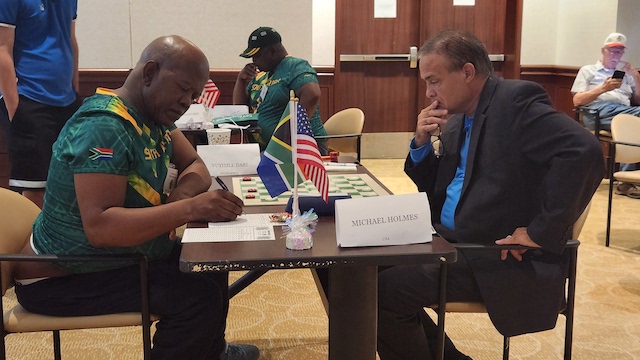Open Government Champions
Published 9:26 am Monday, July 25, 2016
Rep. Clardy presses for government transparency, public’s right to know
EDITOR’S NOTE: This is one in an occasional series of opinion pieces on legislators and other Texans who are openly committed to sustaining government transparency and accountability. The articles are being prepared and distributed by the Freedom of Information Foundation of Texas and the Texas Press Association.
By GARY BORDERS
State Rep. Travis Clardy, R-Nacogdoches, in his two terms in the Legislature has proven to be a strong proponent for transparency in government.
“We live in a free society,” he said. “The people’s trust in government and their institutions is relative to how directly they know what is going on.”
Clardy last session served as vice chairman of the Local and Consent Calendars Committee. He co-authored legislation protecting journalists who accurately report third-party allegations of wrongdoing on matters of public concern, even if the accusations are not yet part of a government inquiry. Clardy also amended a barratry bill he co-sponsored that allowed complete motor vehicle accident reports to continue to be available to newspapers and broadcast outlets. For his work last session, he received a “Friend of the First Amendment” award from Texas Press Association.
Clardy says trained journalists are vital to ensuring an informed electorate bombarded with an overwhelming amount of information.
“The risk is, where’s the filter?” he said. “There is so much information available, which makes the role of the traditional media and trained journalists so important.”
Clardy would like to see the Legislature take up the issue of “dark money” funding various politically active groups, such as Empower Texans and the American Phoenix Foundation. The latter group deployed people with video cameras to follow legislators last session throughout the halls of the Capitol. Regardless of political leanings, Clardy maintains groups that engage in the political process should have to disclose their funding and expenditures, just as legislators do.
“I feel very strongly that if you are going to engage in the political process — no matter your viewpoint — there are certain disclosures that should be made as to where the money is coming from,” Clardy said.
Clardy, who has practiced law for 28 years and lives above his law office in downtown Nacogdoches with his wife, Judy, said what he has learned practicing law applies to politics as well.
“If you want to know the truth, you follow the money,” he said.
Clardy said he would welcome working with “serious journalists” and others to come up with a solution for what he terms abuse of the Texas Public Information Act. “There are folks who know how to play the game,” and their information requests often overwhelm government workers.
“I would like to see some smart folks come up with solutions, but my populist side says every citizen has the right to information,” he said. “It’s a tough issue.”
Finally, the issue of whether government entities should continue to be required to publish legal notices in newspapers comes up every legislative session. Clardy points out that he represents three largely rural counties.
“For a lot of people in the district I serve, they get their news from the newspaper in their mailbox or driveway,” he said. Clardy strongly favors placing legal notices on numerous websites but they “should always be in the printed publication.”
“If we are striving for an informed electorate, then newspapers are essential. If it comes at some expense (to public entities), so be it,” he said.
Clardy is in his second term representing District 11, which includes Nacogdoches, Rusk and Cherokee counties in East Texas. Gary Borders is a board member of the Freedom of Information Foundation of Texas, which hosts its state conference Sept. 8, 2016, in Austin. For more information go to www.foift.org.





